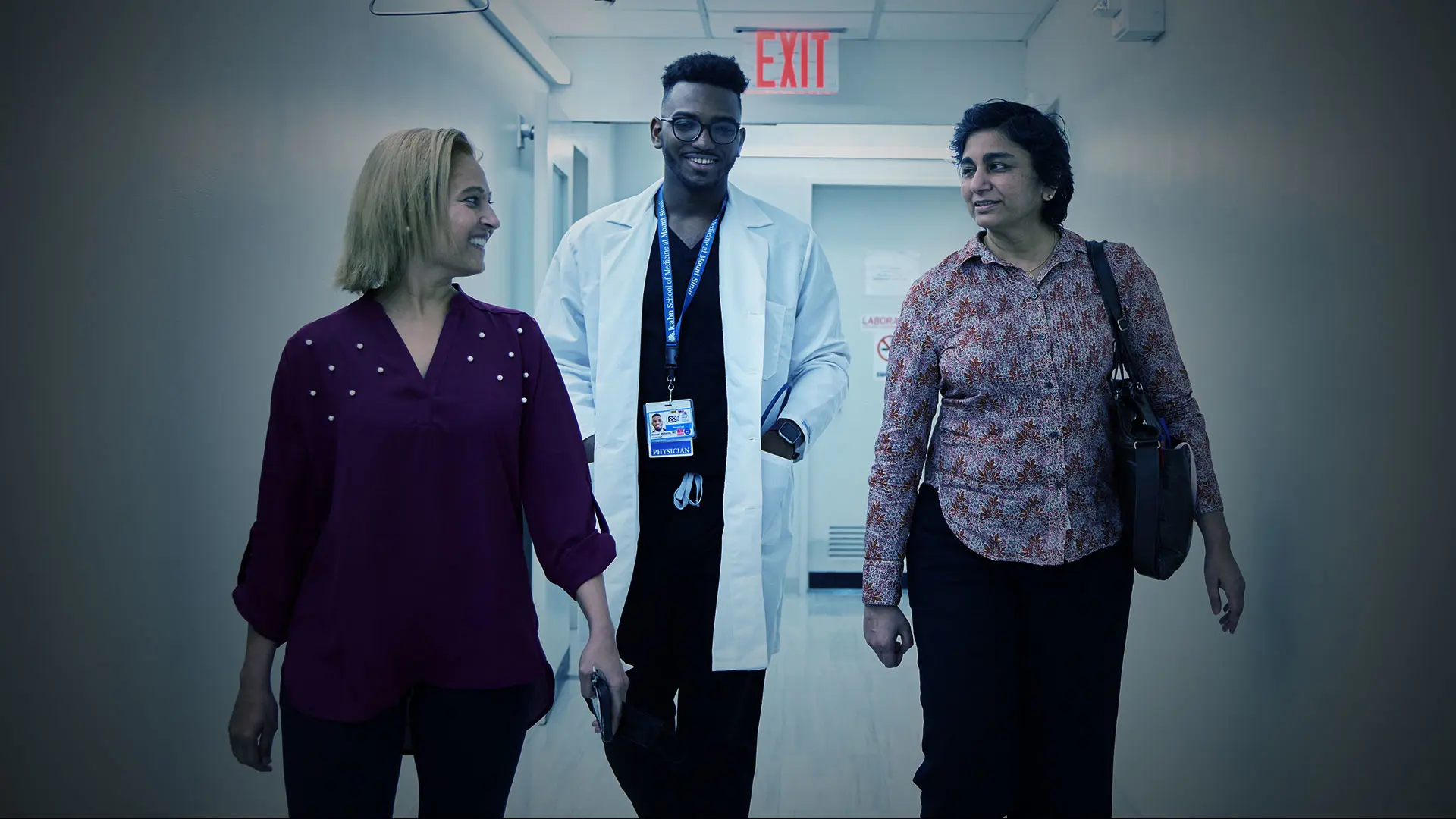For seven years, Sakshi Dua, MD, has sifted through 500 applications each summer to identify candidates to interview for The Mount Sinai Hospital’s Pulmonary and Critical Care Medicine fellowship. In summer 2021, she decided to take additional steps to ensure her selections were bias free: She reviewed the submissions without looking at the photographs of the candidates and had a division colleague who works in the diversity, equity, and inclusion space review the applications as part of the selection committee.
She found the results somewhat surprising: Despite considerable unconscious bias training, she had, based on her perceptions of high-caliber training programs, passed over some candidates from historically Black colleges whom her colleague recommended.
“We decided to meet halfway and invite some of the applicants I passed over to interview for the fellowship,” says Dr. Dua, Program Director for the Mount Sinai Pulmonary and Critical Care Medicine Fellowship Program, and Associate Professor of Medicine (Pulmonary, Critical Care and Sleep Medicine), and Medical Education, at the Icahn School of Medicine at Mount Sinai. “It was an important reminder to continue participating in unconscious bias training and look for more ways to remove bias from the selection process, such as filtering out applicants’ names next year. This year, we also introduced a standardized interview format to tackle unconscious bias from the faculty interviewer, including additional points given to those candidates who enhance divisional diversity.”
Dr. Dua’s experience is one facet of a concerted effort within the Catherine and Henry J. Gaisman Division of Pulmonary, Critical Care and Sleep Medicine, and the entire Mount Sinai Health System, to become an anti-racist institution. It is an effort that deepened over the past year, driven in part by the inequities and issues raised by the COVID-19 pandemic but also the police killings of George Floyd, Breonna Taylor, and many others. Perhaps the most notable initiative is the Mount Sinai Health System Road Map for Action, which is engaging stakeholders and other experts to create a more inclusive and equitable environment for faculty, staff, students, trainees, and patients. But the Division has also stepped up its efforts to address racism and bias through undertakings such as a task force on racism and a diversity, equity, and inclusion committee.
“The goal of the division task force is to engage our faculty, trainees, staff, and students in activities that leverage the work done by Icahn Mount Sinai and the department,” says Charles A. Powell, MD, MBA, Chief of the Division, Director of the Mount Sinai – National Jewish Health Respiratory Institute, and Janice and Coleman Rabin Professor of Pulmonary Medicine at Icahn Mount Sinai. “Through active engagement, we can accelerate change and enhance sustenance of these important initiatives against racism and foster diversity, equity and inclusion.”
Seeing an applicant's name or photograph can cause unconscious bias.
For Indu A. Ayappa, PhD, accelerating change means diversifying Mount Sinai’s training pipeline. She secured funding to train two minority researchers, and is seeking funding for two more, through the diversity supplement program of the National Institutes of Health (NIH), and is working on a T32 training grant application to recruit additional postdoctoral fellows.
“The recruitment pipeline is very network-based and, for the most part, our networks are small and not very diverse,” says Dr. Ayappa, Professor of Medicine (Pulmonary, Critical Care and Sleep Medicine) at Icahn Mount Sinai. “The only way to expand the pool naturally is to reach out more to minority candidates, such as Black student groups at colleges. It is a slow process that is not going to be fixed quickly and we have to be persistent with outreach and engagement.”
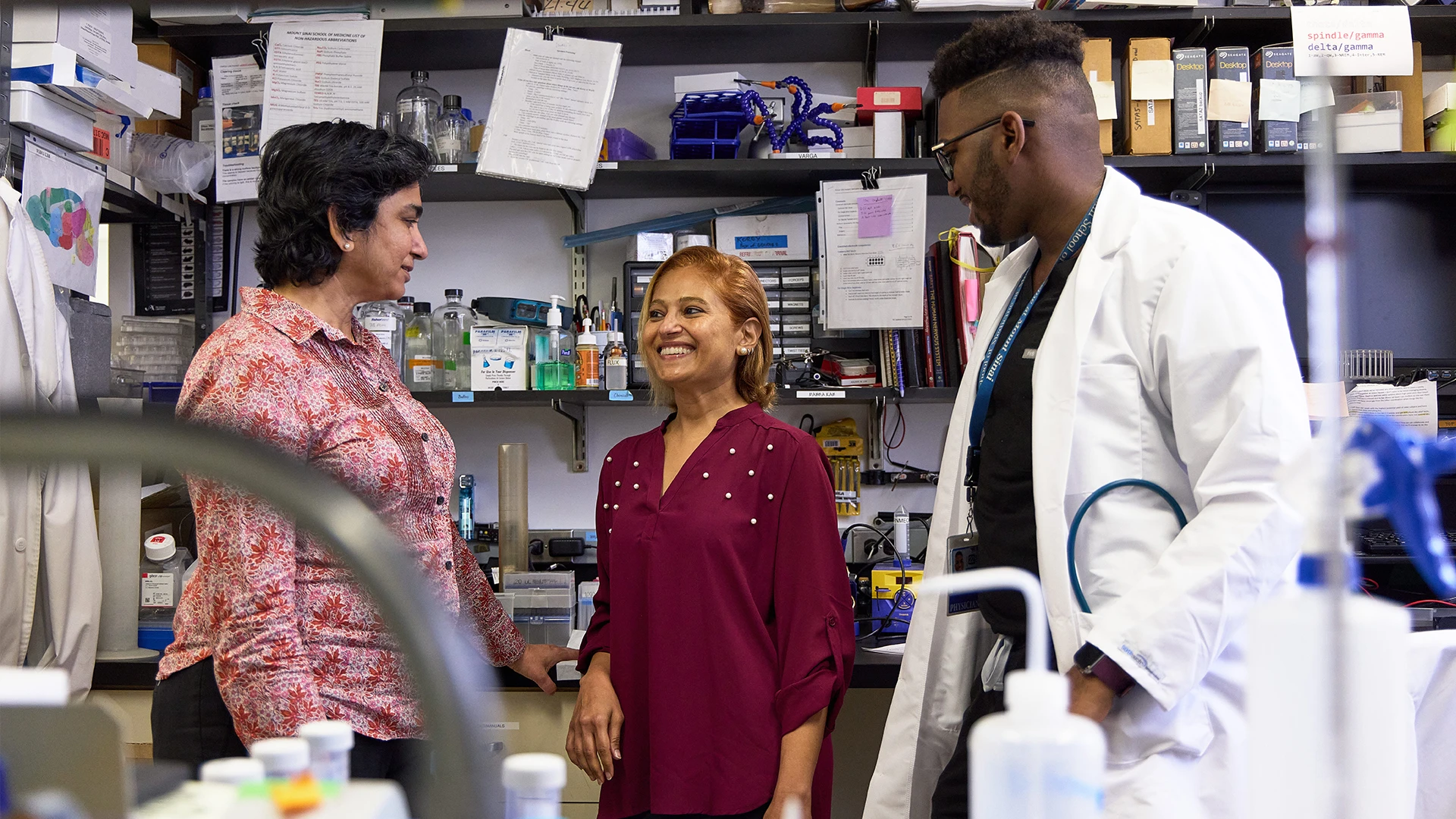
Indu A. Ayappa, PhD, and Sakshi Dua, MD, with Masrai Williams, MD, a neurology resident who is being mentored in the Mount Sinai Integrative Sleep Center
Training is another key component in the Division’s efforts to address racism and bias. In fall 2021, Yoland F. Philpotts, MD, helped launch “From Awareness to Action: Tools for Mitigating Bias in the Clinical Setting,” a series of workshops that engaged 125 Mount Sinai faculty and staff members in an exploration of the impacts of unconscious bias in the medical intensive care unit.
“It does not benefit us as a unit if there are people who do not feel appreciated, because that affects how they do their job and that could trickle down to how we treat our patients,” says Dr. Philpotts, Assistant Professor of Medicine (Pulmonary, Critical Care and Sleep Medicine) at Icahn Mount Sinai. “We also know that our unconscious biases can be exacerbated by significant stress, such as the COVID-19 pandemic. Through these sessions, we looked at our triggers and the culture of our unit, and identified mitigation strategies to address our biases. We are looking at expanding the workshop to other intensive care units across Mount Sinai.”
“It was a way of letting the people we serve know that we are here, we are human, and we want to share our story but in a way that does not usurp their narrative.”
- Lina Miyakawa, MD
As Dr. Philpotts looked internally to address racism and bias, pulmonologists such as Lina Miyakawa, MD, and Mirna M. Mohanraj, MD, looked outward to address accessibility and community health issues. They partnered with Harlem Run, a community-based fitness group that is open to runners, walkers, and joggers of all sizes, ages, and abilities, on two initiatives: a series of education sessions to address public health concerns and “Walk Together, Talk Together,” an eight-week series in which Mount Sinai pulmonologists and health care workers participated in community runs and walks.
“It was really refreshing to spend time chatting with people in the community and not feel rushed or pressured,” says Dr. Mohanraj, Associate Professor of Medicine (Pulmonary, Critical Care and Sleep Medicine) at Icahn Mount Sinai. “We talked about everything from vaccine hesitancy to films and restaurants. Each week, one or more Harlem Run walkers approached us with their personal health challenges. We've been able to expedite care for them within our own network of pulmonary and sleep physicians.”
“It was a way of letting the people we serve know that we are here, we are human, and we want to share our story but in a way that does not usurp their narrative,” adds Dr. Miyakawa, Assistant Professor of Medicine (Pulmonary, Critical Care and Sleep Medicine) at Icahn Mount Sinai. “Ideally, we would love to measure the impact of interactions like this in addressing issues of inequality because we are scientists, but our main goal is to make these initiatives year-round and to add more.”
Featured
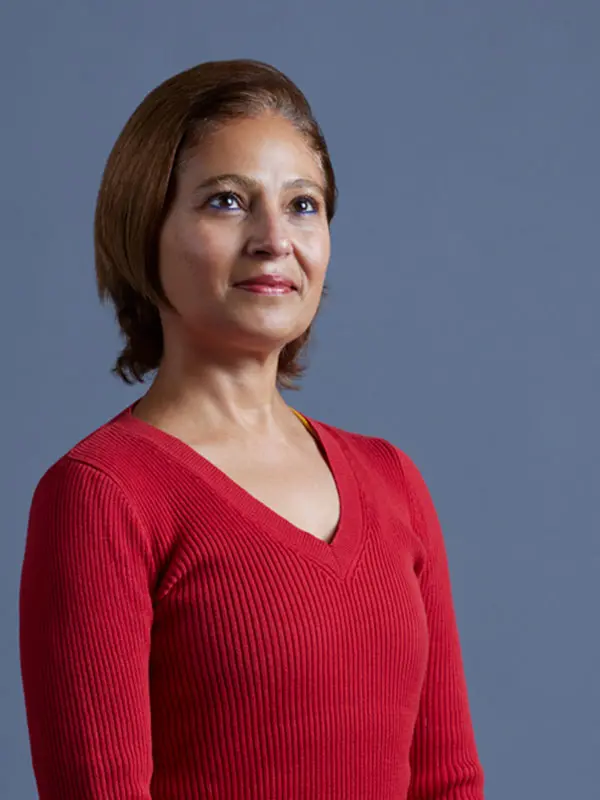
Sakshi Dua, MD
Associate Professor of Medicine (Pulmonary, Critical Care and Sleep Medicine), and Medical Education
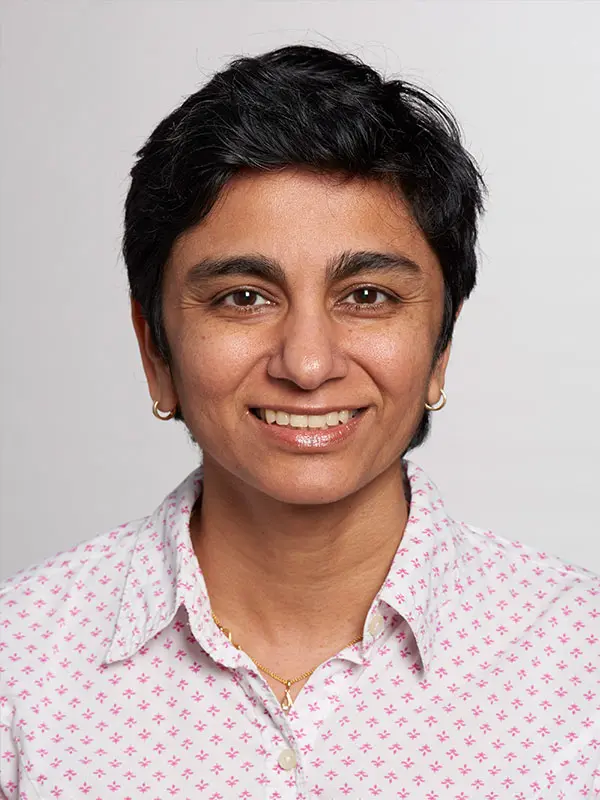
Indu A. Ayappa, PhD
Professor of Medicine (Pulmonary, Critical Care and Sleep Medicine)
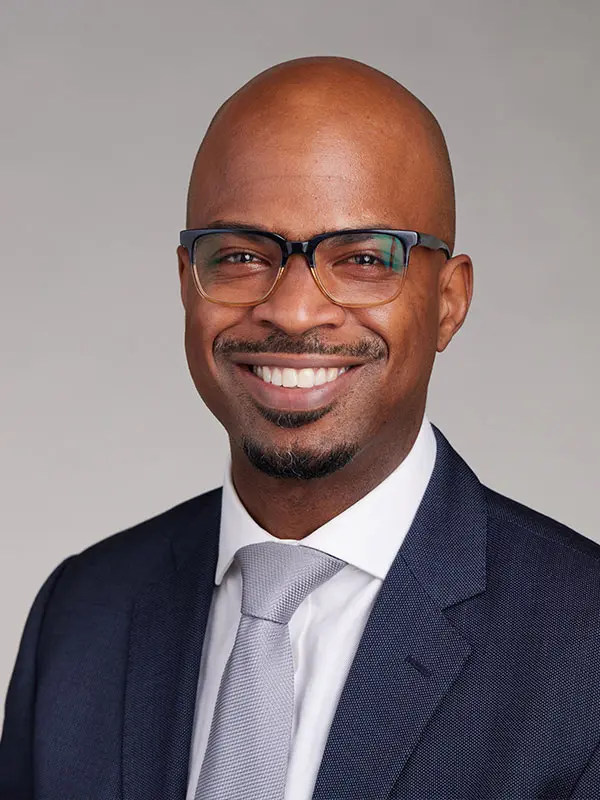
Yoland F. Philpotts, MD
Assistant Professor of Medicine (Pulmonary, Critical Care and Sleep Medicine)
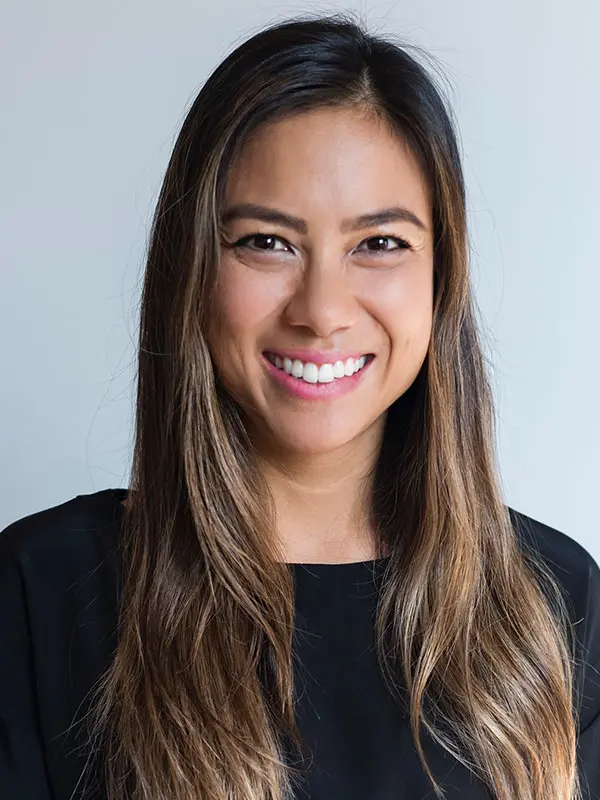
Lina Miyakawa, MD
Assistant Professor of Medicine (Pulmonary, Critical Care and Sleep Medicine)
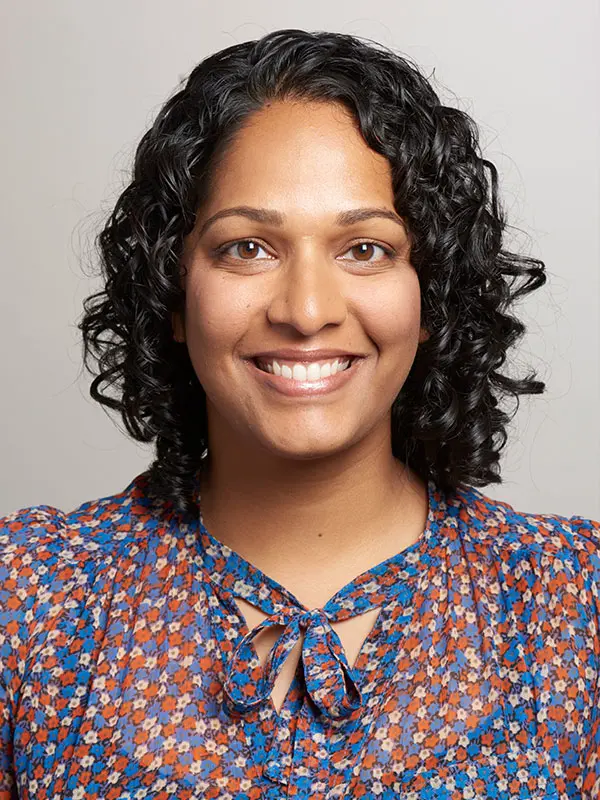
Mirna M. Mohanraj, MD
Associate Professor of Medicine (Pulmonary, Critical Care and Sleep Medicine)
